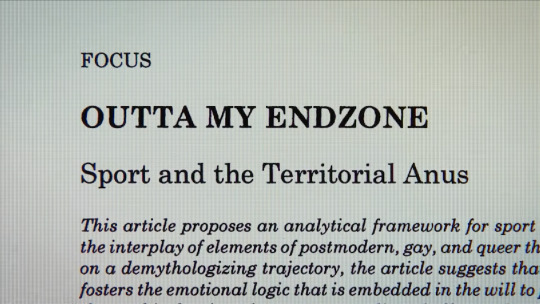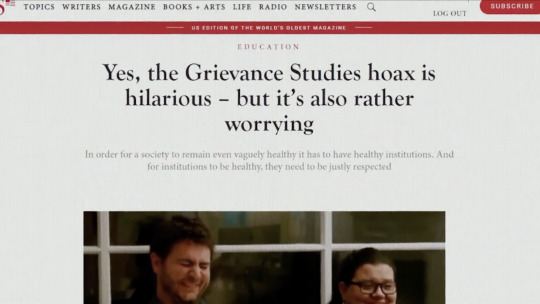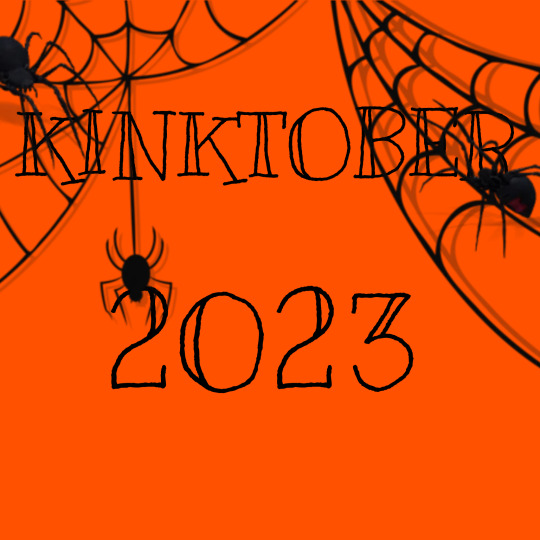#mike penis
Text

Just a quick sketch 'w' I drew Mike Penis, he's named after his father's penis. From an Eric André skit~
3 notes
·
View notes
Text

eight legs to the wall etc etc
#spider man#Spiderverse#mcr#my chemical romance#mike milligram#fabulous killjoys#peni parker#my art#atsv
94 notes
·
View notes
Text
Trying to gage the fandom’s thoughts on good ol’ Mikey boy here, and you gotta pick one! Reblogs appreciated!
#fnaf#fnaf movie#five nights at freddy's#five nights at freddy’s movie#fnaf spoilers#fnaf movie spoilers#five nights at freddy’s spoilers#five nights at freddy’s movie spoilers#mike schmidt#michael afton#polls#tumblr polls#I wanna know everyone’s thoughts#i'm a mike is michael truther#imma continue to huff my hopium lol#edit: if this turns into a penis poll imma lose it lmao
32 notes
·
View notes
Text




Art block is not fun but anyway have these bc the fnaf movie still lives in my mind rent free
#art#fanart#fnaf at freddy’s#fnaf fandom#fnaf movie#five nights at freddy's#fnaf fanart#fnaf movie fanart#william afton fanart#william afton#matthew lillard#josh hutcherson#mike afton#micheal afton#art wip#art block sucks fat penis
22 notes
·
View notes
Text
tim gets bottom surgery post-prentiss and his dick looks like it got attacked by worms
#*mike crew voice* timothy why does your penis have polka dots#tma#the magnus archives#magpod#tim stoker#timothy stoker#trans!tim#bs.txt
44 notes
·
View notes
Text
Ive shifted fully into peter mode now

^The last thing I see before Peter gabriel drags me down into Peter gabriel world and I'm stuck there and imprisoned forever. That's happening right now
#But on October 2nd I will be in Mike mode then October 3 it will be#The day of Peter gabriel overindulgence Peter gabriel penis explosion day.#Then October 4th...who knows
7 notes
·
View notes
Text
By: Michael Sherman
Published: May 8, 2023
On May 7, 2023 a new documentary series by the filmmaker Michael Nayna, titled The Reformers, premiers on Substack (Part 1 is free, the additional 3 parts are paywalled). It's worth watching. The series is about the Sokal Squared hoaxed papers that revealed the hallow obscurantism of grievance studies. Here’s the description and trailer:
youtube
Skeptic magazine revealed the first Sokal Squared hoax paper, titled “The Conceptual Penis as a Social Construct: A Sokal-Style Hoax on Gender Studies.” The original paper is full of academic balderdash. For example:
We argue that the conceptual penis is better understood not as an anatomical organ but as a social construct isomorphic to performative toxic masculinity.
And:
We conclude that penises are not best understood as the male sexual organ, or as a male reproductive organ, but instead as an enacted social construct that is both damaging and problematic for society and future generations. The conceptual penis presents significant problems for gender identity and reproductive identity within social and family dynamics, is exclusionary to disenfranchised communities based upon gender or reproductive identity, is an enduring source of abuse for women and other gender-marginalized groups and individuals, is the universal performative source of rape, and is the conceptual driver behind much of climate change.
And:
Inasmuch as masculinity is essentially performative, so too is the conceptual penis. The penis, in the words of Judith Butler, “can only be understood through reference to what is barred from the signifier within the domain of corporeal legibility” (Butler, 1993). The penis should not be understood as an honest expression of the performer’s intent should it be presented in a performance of masculinity or hypermasculinity. Thus, the isomorphism between the conceptual penis and what’s referred to throughout discursive feminist literature as “toxic hypermasculinity,” is one defined upon a vector of male cultural machismo braggadocio, with the conceptual penis playing the roles of subject, object, and verb of action.
In their exposé the authors of the hoaxed paper, James Lindsey and Peter Boghossian, offer two reasons for their hoax: (1) the pretentious nonsense that often passes for scholarship in postmodernism studies, and (2) the lax standards of some peer-reviewed journals. Critics of the hoax pounced on the second, claiming that the journal that published their nonsensical paper, Cogent Social Science, is a lowered-tiered journal and therefore the hoax was a failure. My motivation for publishing the exposé focused on the first problem. To me, it wouldn’t have mattered if the hoax were published in the Annals of Improbable Research, The Journal of Irreproducible Results, or even the Onion. The point, for me, is not to fool journal editors, but to expose scholarship that passes for cogent argumentation in support of a thesis that is, in fact, what Gordon Pennycook, James Allan Cheyne, and their colleagues call “pseudo-profound bullshit.”

Bullshit, they write, is language “constructed to impress upon the reader some sense of profundity at the expense of a clear exposition of meaning or truth.” Bullshit is meant to impress through obfuscation; that is, to say something that sounds profound but may be nonsense. It may not be nonsense, but if you can’t tell the difference then, to quote Strother Martin’s character from the 1967 Paul Newman film Cool Hand Luke, “what we’ve got here is failure to communicate.” Compare, for example, any of the passages from the “Conceptual Penis” hoax to the abstract for the 2016 paper published in the peer-reviewed journal Progress in Human Geography titled “Glaciers, Gender, and Science”:
Glaciers are key icons of climate change and global environmental change. However, the relationships among gender, science, and glaciers—particularly related to epistemological questions about the production of glaciological knowledge—remain understudied. This paper thus proposes a feminist glaciology framework with four key components: 1) knowledge producers; (2) gendered science and knowledge; (3) systems of scientific domination; and (4) alternative representations of glaciers. Merging feminist postcolonial science studies and feminist political ecology, the feminist glaciology framework generates robust analysis of gender, power, and epistemologies in dynamic social-ecological systems, thereby leading to more just and equitable science and human-ice interactions.

When this paper was published I thought it was a hoax, so I contacted the University of Oregon, the institution of the paper’s authors, and confirmed it was real. And this is just one of countless examples, posted daily on Twitter @RealPeerReview and retweeted all over the Internet to the amusement of readers who cannot decipher what most of these articles are even about, much less comprehend their arguments and gain value from their conclusions.
What matters to me is the truth about reality (lower t and lower r), which science is best equipped to determine. Ever since the 1980s there has been a movement afoot in academia in which postmodernism has encroached on some of biology, much of social science (especially cultural anthropology), and most of history, literature, and the humanities, in which the claim is made that there is no truth to be determined because there is no reality to study. Nearly everything—from race and gender to genes and brains—is socially constructed and linguistically determined by our narratives. And the more obfuscating those narratives are about these socially constructed non-realities, the better. This is the very opposite of how science should be conducted and communicated, and it is, in part, why we are currently witnessing the campus madness involving student protests—and even violence—when their unscientific postmodern unreal worldviews collide with the reality of contradictory facts and opposing viewpoints. It’s time we put a stop to the lunacy and demand critical thinking and clear communication.

The Morality of Hoaxes
The beauty and power of a well-executed hoax is that it reveals deeper truths not only about both the victims of the hoax and the hoaxers themselves, but about human nature and the foibles of our belief systems.
Decades of careful and extensive research into cognition and the psychology of how beliefs are formed reveals that none of us simply gather facts and draw conclusions from them in an inductive process. What happens is that most of us most of the time arrive at our beliefs for a host of psychological and social reasons have little or nothing to do with logic, reason, empiricism, or data. Most of our beliefs are shaped by our parents, our siblings, our peer groups, our teachers, our mentors, our professional colleagues, and by the culture at large. We form and hold those beliefs because they provide emotional comfort, because they fit well with our life styles or career choices, or because they work within the larger context of our family dynamics or social network. Then we build back into those beliefs reasons for why we hold them. This process is driven by two well-known cognitive biases: the hindsight bias, where once an event has happened or a belief is formed it is easy to look back and reconstruct not only how it happened or was formed, but also why it had to be that way and not some other way; and the confirmation bias,, in which we seek and find confirmatory evidence in support of already existing beliefs and ignore or reinterpret disconfirmatory evidence.
Given this state of our cognitive limitations, it should not surprise us that a movement arose in the 1980s that is variously described as postmodernism, deconstructionism, or cognitive relativism. Going far beyond cognitive psychology and leaning heavily on Marxist notions of cultural and class determinism, this academic movement came to believe that there are no privileged truths, no objective reality to be discovered, and no belief, idea, hypothesis, or theory that is closer to the truth than any other. In time, the movement spilled out of lit-crit English departments into the history and philosophy of science, as professional philosophers and historians, swept up in a paroxysm of postmodern deconstruction, proffered a view of science as a relativistic game played by European white males in a reductionistic frenzy of hermeneutical hegemony, hell bent on suppressing the masses beneath the thumb of dialectical scientism and technocracy. Yes, some of them actually talk like that, and one really did call Newton’s Principia a “rape manual.”
In 1996 the New York University physicist and mathematician Alan Sokal put an end to this intellectual masturbation with one of the greatest hoaxes in academic history. Sokal penned a nonsensical article entitled “Transgressing the Boundaries: Toward a Transformative Hermeneutics of Quantum Gravity,” choc-a-block full of postmodern phrases and deconstructionist tropes interspersed with scientific jargon, and submitted it to the journal Social Text, one of two leading publications frequented by fashionably obtuse academics. One sentence from the article, plucked randomly from the text, reads as follows:
It has thus become increasingly apparent that physical “reality”, no less than social “reality”, is at bottom a social and linguistic construct; that scientific “knowledge”, far from being objective, reflects and encodes the dominant ideologies and power relations of the culture that produced it; that the truth claims of science are inherently theory-laden and self-referential; and consequently, that the discourse of the scientific community, for all its undeniable value, cannot assert a privileged epistemological status with respect to counter-hegemonic narratives emanating from dissident or marginalized communities.
Sokal’s article was accepted for publication (as “real”, whatever that means in postmodernism), and upon release Sokal revealed it was all a hoax, and did so, deliciously, in the chief competitor of Social Text, the journal Dissent. Sokal called it a nonsense parody, but because most of what passes for postmodernism is nonsense and indistinguishable from parody, the editors of Social Text could not tell the difference! Q.E.D.
Subsequently, Sokal published a comprehensive book-length explanation, Beyond the Hoax, that provides readers with an annotated edition of the original article (explaining how he came up with each and every meaningless phrase!), the subsequent article in Dissent in which he explained himself to the disgruntled readers of Social Text, and a number of subsequent articles and essays he wrote in the decade since the hoax in which he elaborated on the problems inherent in postmodern philosophy of science. The golden nugget within this longish book—worth the price of admission by itself—is the annotated parody. For example, explaining the above passage, divided up into the semi-colon phrases, Sokal writes (with ellipses denoting the phrase explanations):
This statement is, of course, absurd, but it reflects several conceits of “postmodern” theoretical writing. First of all, reality (even physical reality) has become in certain circles a no-no concept, which must be placed in scare quotes. … This assertion is a commonplace (dare I say a cliché) in radical-social-constructivist writing about science. Like most clichés, it contains a grain of truth but greatly exaggerates the case. Above all, it fails to make the crucial distinction between actual knowledge (i.e. rationally justified true belief) and purported knowledge. … The theory-ladenness of observations goes back at least to physicist-philosopher Pierre Duhem in 1894; it poses problems for the most naïve falsifiability theories but by no means undercuts the epistemic claims of science. … This statement is silly, but it strikes the right emotional chords: against “privilege” (especially scientists’ privilege) and in favor of the “counter-hegemonic”, the “dissident”, and the “marginalized”. … Note, finally, that the four assertions contained in this sentence are at the very least debatable (if not downright absurd); certainly some argument in their favor ought to be required. But the editors of Social Text were happy to publish an article in which these assertions are taken for granted. Apparently in certain circles nowadays these assertions are taken for granted.
Hoaxes are one of the most powerful tools of instruction and edification ever created because they reveal a weakness in human cognition involving gullibility and self-deception. As long as no one is hurt in the process and the reveal in the end is complete and honest, hoaxes are a form of magic.
Magicians, for example, intentionally deceive their audiences, but as long as they are not claiming to use paranormal or supernatural powers (so-called “real magic”), magic can be one of the best tools for understanding how the mind works by revealing how easily it is tricked. From a scientist’s and skeptic’s perspective, magicians like Penn and Teller are effective because they not only deceive their audiences, they often also reveal how the tricks are done in order to make a deeper point about deception, self-deception, and honesty. A properly executed hoax can be as entertaining and educational as a good magic show.
Moral objections to hoaxes should be reasonably considered, of course, but as long as no one is hurt in the process and the hoax is revealed in the end and shown to be executed with good intentions to make a deeper point, there is nothing unethical or immoral about hoaxing, and in fact the beauty and power of a well-executed hoax is that it reveals deeper truths not only about both the victims of the hoax and the hoaxers themselves, but about human nature and the foibles of our belief systems.
Why do people fall for such hoaxes? The hindsight bias and the confirmation bias. Once you believe that science holds no privileged position in the search for truth, and that it is just another way of knowing, it is easy to pull out of such hoaxed articles additional evidence that supports your belief. It is a very human process, and since science is conducted by very real humans, isn’t it subject to these same cognitive biases? Yes, except for one thing: the built-in process known as the scientific method.
There is progress in science, and some views really are superior to others, regardless of the color, gender, or country of origin of the scientist holding that view. Despite the fact that scientific data are “theory laden,” science is truly different than art, music, religion, and other forms of human “knowing” because it has a self-correcting mechanism built into it. If you don’t catch the flaws in your theory, the slant in your bias, or the distortion in your preferences, someone else will, usually with great glee and in a public forum, for example, a competing journal! Scientists may be biased, but science itself, for all its flaws, is still the best system ever devised for understanding how the world works.
==
It's enlightening, but also disturbing, to see the nonsensical academic shibboleths that we're surrounded by today are unchanged from Sokal's hoax almost 30 years ago when he spotted the problem.
They've been concocting buzzword-laden nonsense, peddling intellectual fraud as wisdom, and inventing fake credentials through bogus journals - aka "idea laundering" - for no less than that long.
youtube
#Michael Shermer#Skeptic Magazine#Mike Nayna#The Reformers#Grievance Studies scandal#Grievance Studies#Grievance Studies hoax#Grievance Studies Affair#Alan Sokal#Transgressing the Boundaries#The Conceptual Penis#feminist glaciology#feminist theory#James Lindsay#Peter Boghossian#Helen Pluckrose#academic corruption#idea laundering#ideological corruption#ideological capture#wokeness as religion#woke#wokeism#cult of woke#wokeness#buzzwords#social constructivism#reality denial#postmodernism#religion is a mental illness
6 notes
·
View notes
Text
HEY *looks around susupiciaously" why is no one posting gay sex gif except for when im sitting in the keflavík airport sbarro. can anybody hear me
2 notes
·
View notes
Text
I post one selfie for the first time in YEARS and all the thirsty weirdos on here start asking me about my preference on penis size 🤣
They'll have the shock of their horny tumblr lives when I go back to my usual Mike Patton shit posting 🤣😂
3 notes
·
View notes
Text
Thinking about Him………… my most recent fwb and his massive hog <\3
3 notes
·
View notes
Text
if you do not play koski in net next game every oiler needs to be fired
3 notes
·
View notes
Text
.
#i honestly don't know if im more proud of myself for completing this last weaving order in time#or calculating mike's penis size via hawaiian shirt
5 notes
·
View notes
Text

DAY 🎃TWENTY THREE🎃 PHONE SEX - GOJO
Warning
Smut, nsfw, male reader gay, toys, phone sex, reader sucks a toy

"Grip it tightly but don't hurt yourself... Long slow strokes" gojos voice heavy through the speakerphone as (name) followed his instructions, gripping his own cock and slowly pumping it "a-ah...hn!" (Name) didn't bother holding any noises in, alone in the expensive home Gojo provided for the two, the satin sheets cool under his hot flesh "good boy... Rub your thumb across the tip, put pressure"
This is how it was when Gojo was gone, prolonged missions and no sex made both equally annoyed "how are you feeling? Tell me your color~" Gojo asked with a rumble and (name)a hips lifted "g-green..."
"Good... Grab the lube" Gojo instructs stroking his own cock and the sound of shuffling and a cap opening made him grin "three fingers, you're probably still loose... Fuck your cute little boy pussy with your fingers but if you cum, I don't fuck you when I get home"
"I-I won't .." (name) promises and gojo grins "good, can't wait to have your pretty little throat choking on my cock, barely breathing and desperate for cum" Gojo said as (name) pushed in his fingers, moving slowly with little moans "move faster, I can tell your not fucking yourself the way I would~" he sang out and (name) moved faster, jolting when his fingers hit his prostate "ahn!"
"Oh? Did my little bunny find his prostate?" Gojo cooed "hit it again" he instructed and (name) did just that, rubbing and pressing his prostate aggressively as Gojo praised through the mike.
"Sa-satoru...." (name) whined as he tried to pretend it was gojo fingering him "you're doing so good... Why don't you make me happy and grab our special toy from the box"
There was a reason Gojo called (name) bunny, he had the personality of one...and the sex drive.
It's why they fucked every morning and night when time allowed, (name) usually riding his cock before hobbling to the bathroom with Gojo snickering.
It was a gift for when Gojo was gone, a copy of his penis, it glowed in the dark as well and (name) /loved it/, once taking Gojo and the toy at the same time.
"Don't put it in yet baby... You gotta prep it remember?'
(Name)s eyes were blown out as he set the dildo beside the phone "kiss the tip bunny" (name) being the good boy he was, gave it an open mouth kiss and gojo chuckled at the sound "good boy, lick up the vein, you know what to do" and (name) did, licking up the cock and circling the tip they way he knew that drove Gojo insane.
"Now take it in"
The sound of (name) sucking cock was loud and obscene, Gojo stroking his cock aggressively at the sounds, closing his eyes to imagine (name) sucking his cock, face flushed and hips swaying as he did so.
(Name) deep throated the toy, gagging slightly as he did so and eyes growing teary but he has to make his husband cum and god be wanted to cum so badly---
He was a good boy though.
"I'm close baby are you?"
"Mmh!"
"Then why don't you make me cum then hop on yeah?"
(Name)s sucking became aggressive as he tried to make Gojo cum.
"Fuck baby- take it!"
God (name) wished he could swallow his husband's cum...
"Now hop on angel"
But first he needed to ride this toy like his life depended on it.
#kinktober 2023#male reader#x male reader#gojo satoru x male reader#gojo satoro x reader#gojo satoru#jjk x male reader#jjk x reader#smut#anime x reader#anime x male reader
500 notes
·
View notes